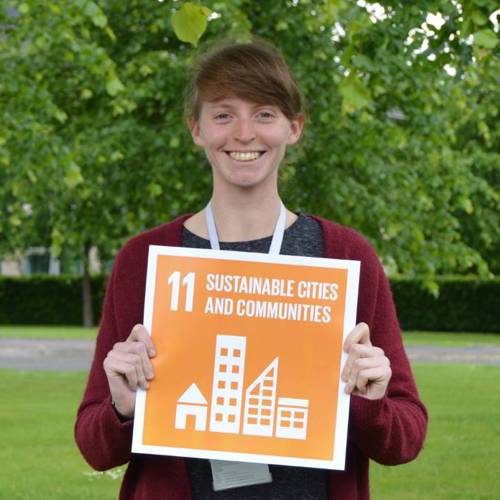As we welcome the ban on the sale of single-use ‘disposable’ vapes coming into force on 1 June 2025, our Senior Officer on LEQ data Carrie Marling highlights our journey from first spotting these items as litter to the data showing them become the fastest growing litter item over the past few years.
She highlights how we have used our audits to collect data and evidence, and public perception data to raise awareness of the harm they cause, and to call for action, in collaboration with key partners, for Scotland, and then the UK.
Part of my role at Keep Scotland Beautiful is to follow the trends in the litter on our streets and evidence this with data. This can be given to local authorities to help keep our streets clean and also to Scottish Government and Zero Waste Scotland, feeding into policy. One big ask over the last few years has been on single-use vapes which I am pleased to say are banned from 1 June!
We know that dropping a cigarette on the pavement or in the gutter (even if there is a bin nearby) is unfortunately not new. The same items appear time and time again when we are surveying as part of our annual audits where, with local authorities, around 13,000 sites are surveyed every year - snack packaging, cigarette butts, drinks cans and bottles as well as all those bits of unknown plastic.
But what about new trends? We have always kept an eye on emerging litter types with internal emails wondering if we have any stats on rubber bands or coffee cups and in recent years we have worked to collect data on more categories aligned to what we are seeing and on policy areas in Scotland and across the four nations.
I started working on litter data in 2020, during the pandemic, when we immediately started to collect data on single-use face masks and other PPE items as we were seeing them everywhere. I took pictures to show how people may not even notice them but they were there! I should say our friends on Facebook spotted them easily though.
When the need for masks was no longer needed and we saw them less often, a new litter type started becoming a noticeable problem - vapes. Vaping has been around for decades, but this was next level.
A complex electrical item with metals and plastics which are challenging to dispose of, with regulations around the recycling of them and the ability to harm our environment and people, these items are merely dropped on our streets. They also come with packaging and stickers which seem to end up on the outside of bins that local authorities are having to deal with too. In 2023 we started to collect data on vaping related litter.
My colleagues had already been working with ASH Scotland, Marine Conservation Society and Laura Young to raise awareness of the plastic in cigarette filters and the harm they could do to our environment, so, based on the increasing number of single-use vapes being found as litter we issued a joint letter to Scottish Ministers calling for a ban on their sale. We followed up with a call to all Scottish retailers to follow in the footsteps of Waitrose and introduce a voluntary ban on the sales of single-use vapes. With a parliamentary round table event in mid-2023, we did our first stock check on the data to find there was vaping-related litter found at 1 in 13 sites and it was more widespread than dog fouling. Again, our ask was to ban single-use vapes.
In 2023/24 we started collecting data specifically on single-use vapes. We found 9% of sites surveyed by Keep Scotland Beautiful were affected and, using the quintiles of Scottish Index of Multiple Deprivation, could see they were more widespread in areas deemed most deprived where 15% of sites were affected compared to 5% in the areas deemed least deprived. We also found a greater presence in high density residential areas where at least one vape was recorded at 1 in 10 sites.
By March 2024, Keep Scotland Beautiful used the data to submit a detailed and compelling response to the consultation on the draft legislation being taken forward in Scotland using powers under the Environmental Protection Act 1990.
Research we commissioned through the Diffley Partnership in 2024 found that 55% of people surveyed reported that sightings of single-use vapes have become more common in the past 12 months. And that 57% of people in urban areas are more likely to report increasing prevalence compared to 43% in rural areas. This grew from the same survey the year before.
With a new financial year comes a new set of litter types to monitor – keeping many of the same items to study the trends. This year we hope to see single-use vapes drop significantly although these will no doubt continue to appear in our audit data. We urge everyone who uses them to dispose of them appropriately as electronic waste – not to bin them or litter them. We have also added some new items related to re-usable vapes, and nicotine pouches to the survey form, in the fear that with the ban on sales of single-use vapes new litter types will appear – we’ll have to see what the data tells us.
Working with our partners to deliver Scotland’s Litter and Flytipping Strategy, we continue to use the data we gather to help identify new challenges, drive policy change and inspire changes in behaviours. I am looking out for the next ‘new litter’ type to emerge - maybe it is already out there! If you notice something when litter picking, carrying out citizen science surveys or just out for a walk please do let us know – your intel can help us identify new trends and work towards eradicating them in the future.
We support the 

